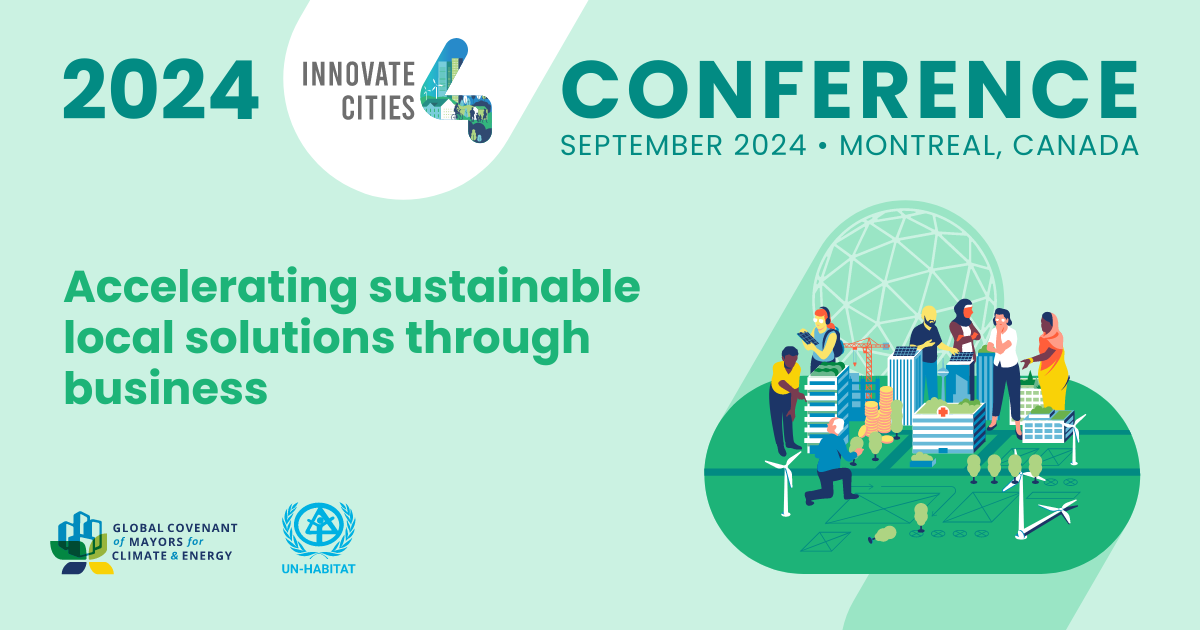Businesses supporting the acceleration of climate action: Insights from a conversation with Paula Kirk and Seth Schultz
In the ongoing battle against climate change, collaboration among various stakeholders has emerged as a cornerstone for progress. Recently, during an enlightening online event hosted by the Global Covenant of Mayors for Climate & Energy (GCoM) and UN-Habitat, Paula Kirk and Seth Schultz shared invaluable insights into the pivotal role of businesses in advancing climate action. Here, we delve into their perspectives and explore why businesses, regardless of size, are indispensable partners in driving sustainable urban progress and an upcoming key opportunity.
How businesses are key partners to accelerating climate action
Paula Kirk, Director and Global Leader for Climate and Sustainability at ARUP, articulated the indispensable role of businesses and emphasized, “businesses offer invaluable expertise, resources, and innovation, crucial for bridging the gap between climate ambition and action.” Through strategic partnerships with cities, businesses not only ensure regulatory compliance but also drive tangible outcomes that benefit communities. For instance, implementing sustainable practices into their operations and investing in renewable energy solutions are pivotal steps in accelerating the transition to a low-carbon economy.
SMEs are the cornerstones of climate action implementation
In addition to large corporations, Seth Schultz, CEO of Resilience Rising, shed light on the equally significant role of small and medium-sized enterprises (SMEs) in climate action. He highlighted , “SMEs possess agility and adaptability, enabling them to implement innovative solutions at the grassroots level.” SMEs are the backbone of economies, contributing significantly to job creation and economic growth. Empowering SMEs through capacity-building initiatives and incentivizing sustainable practices can unlock their potential as agents of positive change.
Business opportunities in sustainable urban development
With around 65% of the 169 targets of the 17 Sustainable Development Goals requiring the engagement of local and regional governments, the inclusion of local, national and global businesses is key to the discussion. Kirk’s experience included working with local government and businesses in London and explained, “in the 20 years plus…the challenges haven’t changed much, but the world we operate in has drastically changed and I think that’s fundamentally a very simple reason for businesses to get involved.”
As Kirk explains, more can be done to bring close gaps between knowledge and action. Scultz agreed, adding that “one of the key issues, from my perspective, is what I refer to as practitioner knowledge. How do you bring people who are (implementing climate solutions) together with the scientists and academics who are studying (this topic).. and practitioner knowledge is not just people in cities who are working in city government, but it’s also indigenous knowledge; it’s local communities; it’s engineers; it’s businesses. Businesses build things, do things, maintain things. And it’s really increasingly important (to include) their perspective and for their knowledge to be brought into the scientific community.”
Listen to the 30 minute conversation with Paula Kirk and Seth Schultz who joined Ben Jance to discuss the critical role of businesses in advancing urban climate action and upcoming opportunities to accelerate climate city action.
To better understand some of the changes and impacts specifically around climate change, the 2024 Innovate4Cities Conference (I4C24) will provide a space for business leaders, government, academia and civil society to exchange views on challenges, solutions, and pathways forward. This year’s Conference, taking place during the week starting 9 September, builds on the successful Innovate4Cities Conference in 2021, which hosted nearly 7,000 participants from diverse sectors and from 159 countries across 220 different sessions. As Scultz explains, I4C24 “is sitting at that intersection (of bringing diverse stakeholders together to accelerate climate action) and it’s beginning to get a bigger platform and be more visible.”
For those interested in submitting a session abstract to be considered for the Innovate4Cities Conference, the deadline for submissions has been extended until 24 May 2024, find out more information on the call for sessions abstract page.
